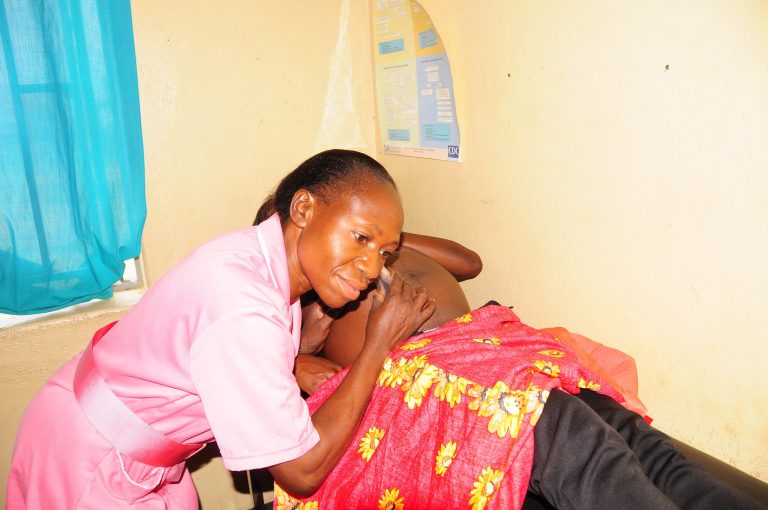Blog by Sylvia Nabanoba, Save the Children.
I was once asked which verse of Psalm 23, The Lord is my Shepherd, made the most meaning to my life. Verse 4, I quickly replied: Even though I walk through the valley of the shadow of death, I will fear no evil, for you are with me.
I said this because I had just had my third baby, and the realization that there is a very thin line between life and death when giving birth struck me even more than it had before. And the earthly person in whose hands my life had lain at that particular moment was the midwife who had assisted me to deliver. I remember the young lady who was monitoring me asking her colleague to stand guard at the door of the delivery room to monitor me while she attended to another mother. But while her colleague was standing guard, my baby decided to make his entrance, so the “guard” had no choice but to deliver him.
Whenever I have given birth, I have wanted to send a thank you card to the midwives and, as was the case with my last child, the doctor, who have helped me deliver. Without their due attention, I am not sure whether or how my babies and I would have survived.
While numerous complaints are heaped on them for things that go wrong in health facilities, we need to acknowledge that a lot of the time midwives go out of their way to ensure that mothers and newborns survive.
I know midwives who wept along with mothers at the deaths of babies they fought so hard to save. Midwives whose tears flow freely when they recall a mother who bled to death as they waited for blood. A midwife who will first bathe a lone mother who comes in the night, having left her three young children and disabled husband at home, because she has failed to give birth on her own this time round. A midwife who will support a teenage mother and her premature newborn to practice kangaroo mother care – the practice of providing immediate and continuous skin-to-skin contact between mother and baby and exclusive breastmilk feeding. A midwife who won’t break off when she is due till she is sure the asphyxiated baby she delivered are breathing on its own. A midwife who will refuse to leave her job in a government facility for one that promises to pay three times more, because she is worried about who will care for the poor mothers who seek services at her health facility. The list is endless.
Watching uniformed midwives from all over the country proudly marching at the commemoration of the International Day of the Midwife in Arua district in northern Uganda on International Day of the Midwife (May 5), I could feel my heart swell at their obvious pride in the profession, challenges notwithstanding.
Of course all this is not to say that midwives don’t make errors, or that the actions of some do not result in preventable deaths of mothers and newborn babies. No. But as we commemorate midwives, let us applaud the many thousands who do a great job, and note that midwives need support to carry out their job well. Support in the form of training, mentorship and supervision, equipment, better working conditions, and a fair workload.
The third of the Sustainable Development Goals spells out specific targets on reducing the deaths of mothers and newborns. For mothers, we should reduce the global maternal mortality ratio to less than 70 per 100,000 live births by 2030, while we aim to reduce neonatal mortality to at least as low as 12 per 1,000 live births. In Uganda, we are currently at 438 maternal deaths per 100,000 live births and about 23 neonatal deaths per 1,000 live births. We have a lot of work to do.
Midwives cannot meet these targets on their own. There is need for concerted efforts from all spheres – Government, civil society, professional councils, midwives themselves, and development partners – to achieve better outcomes for mothers and newborns.
